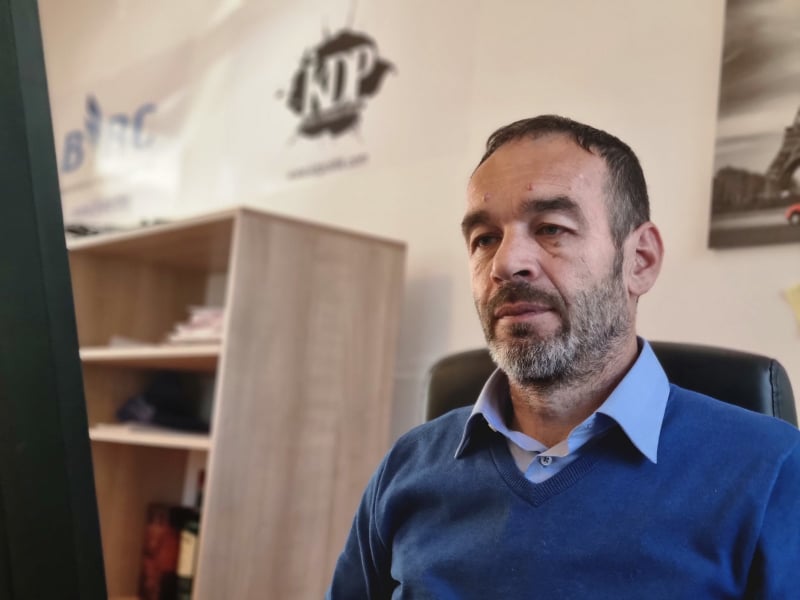The Congress of Bitola, the determination of the Latin alphabet, remains the matrix of the Albanian European being, remains the most sublime and visionary effort of participating minds from all Albanian spaces. Neglecting this event means not understanding the dimension of cultural modernity that it represents, at a time of great historical turns and almost fatal reinventions for Albanian culture. Language is eternity and at the same time an open system of interactions that you add to it the dynamics of forgotten lexical items that come to complete its heights and depths. Many attentive linguists have expressed concern about the reduction of the Albanian language in the dimension of inclusion of the lexicon, especially in the ideological interpretation of this lexicon that we still have in the dictionary. The deideologizing of “Albanian language -totalitarianisms” remains an urgent task to “free” the words from the displaced “cooperatives” semantics and to give them the authentic linguistic meaning.
Author: Bardhyl Zaimi
I don’t know if things can make sense, while within the national life worldviews begin to grow that surpass the barren schemes of self-satisfaction. I have the impression that we are repeating the temporary “ecstasies” and are afraid to show the dilemmas, impasses, fragmentations within the Albanian space, which swim in the frozen sea of immobility and enthusiastic boredom.
Heidegger said that “language is the house of being” and this premise puts us before other concepts, before evaluations and reevaluations that go beyond the antagonisms created, the camps stuck in the armor of duels over the fate of the Albanian language, which remains without any dilemma the main pillar of our cultural identity.
Of course, this article does not claim to present any methodological approach on the language, nor to attack the evaluations so far on the issue of the standardization of the Albanian language. Beyond the clashes, the antagonisms that sometimes appear with marked intensity, we are trying to point out some concerns, which come in the form of negligence and uncertainty, precisely at the time of the celebration of the Alphabet Day and at the time of the fiftieth anniversary of the Spelling Congress.
It has already been said that the Congress of Bitola marks one of the most meaningful events in Albanian history and at the same time one of the events that re-dimensioned the Albanian being in the historical and ontological sense in the European area. With the Congress of Bitola, the Albanians emphasized European orientation and belonging, just as it was determined from the first appearances of Albanian writing, but even deeper in the historical trajectory, from antiquity onwards. The decision to use the Latin alphabet was the seal for this entire historical trajectory, which within eclipses at different times risked degenerating into conjectural choices.
Undoubtedly, this event marks the beginning of a decisive phase in the Albanian cultural emancipation in the spirit of the Renaissance and in the spirit of the expectations of enlightened minds, who were already clear about the urgency of this decision, which would shape and codify the linguistic universe and Albanian culture.
We are already in front of this historical fact, which transforms the city of Bitola into a soulful inheritance of the Albanian language and culture in its own indivisible unit as an identity. Years have passed since this event was noted in North Macedonia, while the institutions of Albania and Kosovo mention this event in passing and with a kind of negligence. The Monastery Congress is an event for all Albanian spaces in terms of the importance of dimensioning the Albanian identity in European coordinates and in terms of the comprehensive vision of linguistic and cultural unification. The Congress of Bitola, the determination of the Latin alphabet, remains the matrix of the Albanian European being, remains the most sublime and visionary effort of participating minds from all Albanian spaces. Neglecting this event means not understanding the dimension of cultural modernity that it represents, at a time of great historical turns and almost fatal reinventions for Albanian culture.
At the time when this year also marks the fiftieth anniversary of the Congress of Spelling, it remains so necessary for linguists to open the debate on the future of the functioning of the standard of the Albanian language that is attacked by globalization and by numerous uncertainties of use that are related to the insufficient acquisition of this standard as a linguistic structure, as a foundation.
Also, another aspect of the ideological alienation of the language, which has fatally reduced it to the rich, excluded lexicon, remains to be seen. Of course, in this direction, the linguistic nebula of the explanation of the words in the Dictionary of the Albanian Language, which comes with entirely ideological connotations and displaced in the lexical semantics, must be considered.
Language is eternity and at the same time an open system of interactions that you add to it the dynamics of forgotten pleasures that come to fill its heights and depths. In fact, the biggest mutilation of the Albanian language has been done in the dimension of the inclusion of the lexicon, especially in the ideological interpretation of this lexicon that we still have in the dictionary. The deidelogization of “Albanian language -totalitarianisms” remains an urgent task to “free” the words from the displaced “cooperative” semantics and to give them the authentic linguistic meaning

